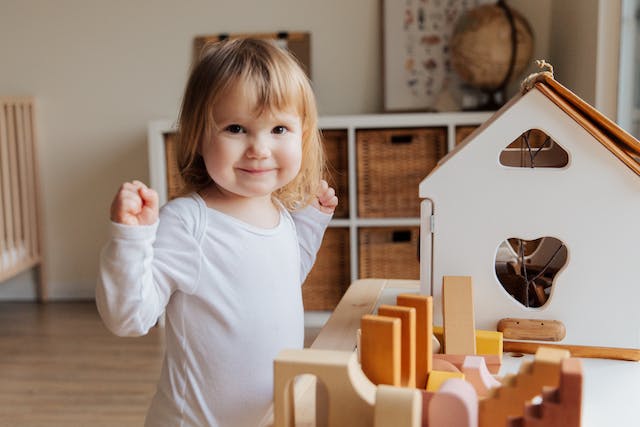Childhood friendships

Question: My daughter is 12 years old, and the usual preteen type. While she is somewhat quiet, she generally makes friends easily. The problem is once she makes a new friend, her stepsister on her dad’s side, also 12, attempts to win them over and basically steal them from her. Because my daughter sleeps at my home 90% of the time, spending 2 evenings a week at her dad’s and every other weekend, it is easy for her sister to play with the friend more frequently. They are not yet at an age where they can all be friends together because of multiple jealousy issues. I am at a loss, and have sat and listened, tried the problem solving active listening techniques, and pretty much everything else I can think of. I am a “parenting specialist”, have taught parenting classes, am a Master’s level student in psychology, and read and research parenting frequently, so it’s not like I am not with some ammunition to work with. Unfortunately I am at a loss, knowing I can’t fix it, but feeling there must be some way of supporting her and her broken heart.
– Kim
Answer: Thanks for writing. It must be very frustrating for someone who helps other parents to be at a loss when your own daughter is hurting. I think that listening and comforting your daughter will definitely help her to understand her feelings and working together on problem solving options will give her a sense of power in a situation that minimizes her sense of self.
As you already know, this is a typical situation for middle school age girls. But, there is a new perspective on the social dynamics of adolescent girls. The Sunday New York Times Magazine (February 24, 2002) ran a great article called “Girls Just Want to be Mean” that described middle school age girls using sophisticated social and language skills to bully other girls in the same way that boys use physical power to bully others. You can view a segment of the article on the New York Times website and also check out the website for Rosalind Wiseman’s The Empowerment Program at www.empowered.org. The article reminds us that girls are not always “nice” and they are exploring power issues just like the boys.
I imagine that you’ve already done a great job of giving voice to your daughter’s feelings. Continue to build a foundation for lifelong self expression and understanding. Then, try to “read” your stepdaughter’s actions accurately and help your daughter to respond with personal strength. Your daughter need not engage in the same kinds of manipulations but she does need to evaluate what she can and cannot accomplish by her actions. Has your daughter told her stepsister how she feels about what is happening? (Remind her that her stepsister may not be sympathetic.) Has she told her friends what she would like to happen when she is staying at her dad’s house? (Again, it may not change anything but it establishes that your daughter’s feelings matter.) What kind of traits does your daughter value in a friend? Why would she prefer these “new” friends over more genuine friends from your neighborhood? I recommend walking through problem solving techniques with your daughter rather than trying to give her solutions. Raising a Thinking Preteen by Myrna Shure is an excellent guide book for parents. The book outlines strategies for: understanding another’s point of view, understanding motives, finding alternative solutions, considering consequences, and sequenced planning. These skills not only teach children to become problem solvers but it gives them a sense of efficacy in the world.
You also described “multiple jealousy issues”. Try to address those underlying issues as a family. Are the girls getting along in other ways? While dad may feel uncomfortable getting in the middle of “preteen girl issues”, he may be able to shift the focus from them to the family. Is it possible to have a family night once a week without friends to help build positive family connections? It must be very difficult to be same sex/same age siblings that did not grow up together! Look for ways to ease any competition between the girls. Begin the slow process of blending families by giving the girls recognition for their individuality and a forum to discuss the advantages and the negatives of a changing family life.
Good Luck,
Karen Deerwester, Ed.S.





Follow Us
Join the conversion. Make sure to follow us on our social platforms for the latest content and FamilyTime news.